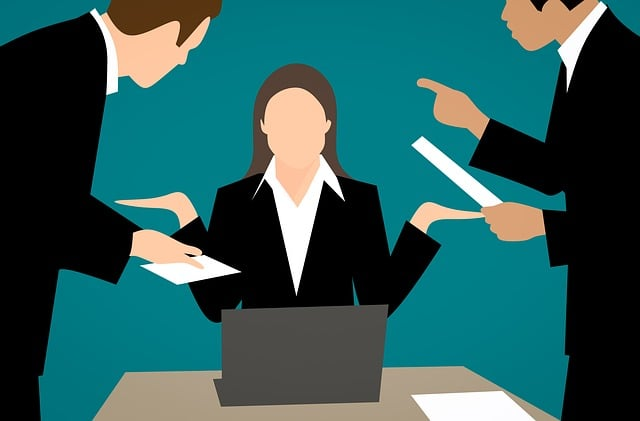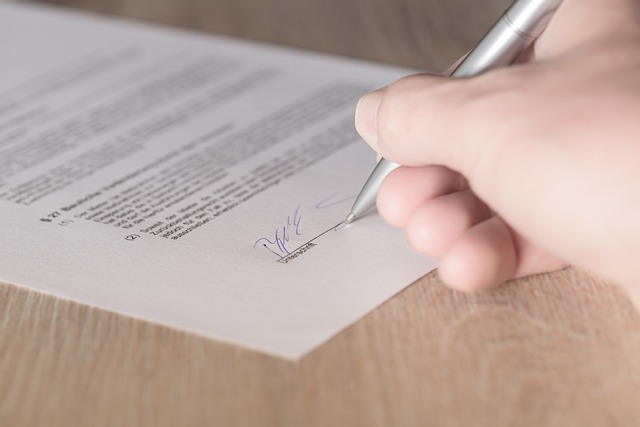Navigating through business litigation dos and don’ts requires a clear understanding of both proactive practices and potential missteps. This guide provides straightforward, actionable dos and don’ts tailored for those facing the complexities of legal disputes in the business arena. Discover essential steps such as enlisting the right legal team and expertise and key mistakes that could undermine your position. Prepare to empower yourself with the knowledge to handle business litigation dos and don’ts confidently without spoiling the in-depth insights to come.
Key Takeaways
- Business litigation encompasses various forms such as breach of contract, shareholder disputes, and business torts, with a focus on determining liability and damages.
- Companies should enlist experienced business law attorneys, prioritize evidence collection, and foster strong business relationships to effectively navigate and resolve disputes.
- To avoid compromising a case, it’s imperative to avoid creating self-serving documents, relying excessively on oral communications, or underestimating the opposing party’s case in litigation.

Understanding Business Litigation
Business litigation is a specialized area of law that deals with resolving disputes in a court of law or through formal legal proceedings, including handling a business lawsuit. It addresses legal issues in both large and small companies across all civil litigation categories related to business operations. The realm of business litigation is diverse, encompassing various forms such as breach of contract cases, shareholder and partnership disputes written contracts, and a variety of business torts like fraud and negligent misrepresentation.
A central aspect of business litigation law is the determination of liability claims and the calculation of damages. When a dispute over claims arises, it’s crucial to:
- Establish who is legally responsible
- Accurately assess the financial implications
- Carefully evaluate the legal dispute at hand
- Measure the extent of the damage caused
- Determine the monetary compensation required to rectify it.
Essential Dos for Successful Dispute Resolution
In the labyrinth of business litigation, it’s vital to have a compass to navigate effectively. This compass is composed of several do’s that can aid in successful business disputes and resolution. These include engaging an experienced business law attorney, prioritizing evidence collection, and fostering strong business relationships. These elements not only help in identifying and mitigating legal issues before they escalate into disputes, but they also offer cost-effective and amicable ways to settle conflicts.
Let’s delve deeper into these aspects.
Engage an Experienced Business Law Attorney in Miami, FL
Navigating the legal landscape of business disputes requires a knowledgeable guide – a business law attorney from J. Muir & Associates. Their role as part of your legal team is not just about representing your company and you, the business owner, in a courtroom but extends to protecting your business assets during disputes through proper legal processes. They can play a crucial part in preserving your company’s reputation by minimizing the impact of public disputes or legal battles. With their expertise, they can guide you through the complexities of the legal system, ensuring that your business interests are safeguarded at every turn. They are adept at crafting strategies tailored to your unique situation, whether it involves negotiating settlements or taking decisive action in court. Their comprehensive understanding of business law means they can offer advice on a wide array of issues, from contract negotiations to intellectual property protection, making them an invaluable asset in times of legal uncertainty. Their goal is to secure the best possible outcome for your business while reducing the stress and disruption that litigation can cause.
Prioritize Evidence Collection
In the realm of business litigation, evidence is king. Thorough documentation of business transactions and communications, along with proper evidence collection, are fundamental in supporting a case in court and proving the facts of the dispute. This is where businesses can leverage technology to their advantage. Investing in systems that automatically track and record business communications and transactions can significantly streamline the process of evidence collection if a dispute arises.
Some key benefits of using technology for evidence collection include:
- Ensuring accuracy and completeness of documentation
- Simplifying the retrieval and organization of evidence
- Reducing the risk of evidence tampering or loss
- Saving time and resources in the litigation process
By implementing technology solutions for evidence collection, businesses can strengthen their position in legal disputes and increase their chances of a favorable outcome.
However, collecting evidence is only half the battle. The other half involves organizing and securing evidence properly to prevent tampering and to gather evidence to ensure its admissibility during legal proceedings. Regular audits of the company’s documentation practices gather relevant evidence and can help ensure that the necessary evidence is being collected and stored appropriately for future disputes.

Foster Strong Business Relationships
When it comes to conducting business in Miami, FL, relationships matter. Nurturing strong business relationships can minimize the likelihood of litigation by making another party less inclined to file a lawsuit due to the strength of the relationship. Regular dialogue and feedback sessions with business partners and stakeholders can help identify and resolve issues before they escalate to legal disputes, thereby protecting the company’s reputation.
Building a strong supportive network through solid business relationships can offer assistance and advice to employees to help navigate disputes without resorting to litigation. Additionally, developing a reputation for fairness and ethical behavior among employees can deter disputes and promote peaceful resolutions whenever conflicts arise. It’s also essential to train all employees on dispute resolution policies to prevent conflicts from developing into legal disputes.
Don’ts That Could Compromise Your Case
Along with the do’s, it’s equally important to be aware of the don’ts in business litigation. Certain actions or lack thereof can compromise your case, leading to unfavorable outcomes. These include creating self-serving documents, relying on excessive oral communications, and underestimating the opposing counsel or the other party’s case.
Let’s delve deeper into these pitfalls.
Avoid Creating Self-Serving Documents
In the heat of a legal dispute, it’s tempting to create documents or statements that solely benefit your position. However, if these are not based on factual evidence, they can be deemed self-serving and may be disregarded by opposing counsel or the court.
It’s essential to base your case on hard evidence and objective facts, rather than resorting to self-serving tactics.
Steer Clear of Excessive Oral Communications
In business, communication is key. However, excessive reliance on oral agreements can create uncertainty and misunderstandings, as they are difficult to prove and enforce in court. They are prone to memory lapses and subjective interpretations, leading to disputes that could have been avoided with written contracts.
While oral agreements can sometimes be legally binding for certain documents, the absence of written documentation may necessitate a greater burden of proof during a dispute. To reduce legal risks, it’s advisable to limit unnecessary oral communications, both within and outside the organization, avoiding any conversations related to the chance of any statements being turned against you in a legal setting.
Never Underestimate Opposing Party’s Case
One of the biggest mistakes in business litigation is underestimating the opposing party’s case. It’s unwise to assume a lawsuit is frivolous or unwinnable for the opposing party, for it can lead to unpreparedness. Legal battles can take unpredictable turns based on new evidence or legal interpretations, making it crucial to take the opposition seriously.
Preparing for an opposing party’s case involves:
- Methodical collection of all relevant evidence
- Allocation of sufficient resources
- Thorough legal analysis to anticipate their arguments and prepare counters
It’s key to best attorney to analyze the opponent’s case from a place of strategy rather than emotion, examining their potential to present a compelling story to the judge or jury.
Financial Considerations in Litigation
Financial considerations are a crucial part of business litigation. These range from legal fees, which can vary based on the attorney’s experience and the legal services required by the law and the company, to litigation expenses such as insurance costs that can provide coverage for the risk of potential lawsuits.
However, financial considerations go beyond just costs. They also involve assessing the cost-benefit of litigation the other party. Business owners must consider instances where legal costs may outweigh the benefits of winning a case. It’s a delicate balancing act that requires careful thought and sound financial judgment.
Leveraging ADR to Your Advantage
While litigation is sometimes inevitable, there are alternative dispute resolution (ADR) methods that can provide a more cost-effective and amicable solution. ADR includes methods such as mediation and arbitration, which offer a fast and inexpensive solution for small businesses compared to prolonged and expensive court processes.
Mediation allows for conversation and understanding among parties, promoting a less adversarial approach and supporting relationship preservation. Arbitration, however, provides parties with a binding, alternative dispute resolution, that can be faster and more cost-effective than traditional court processes. By leveraging the cost-efficiency and collaborative nature of ADR, businesses can achieve favorable dispute resolutions while maintaining confidentiality.
Protecting Intellectual Property Rights
In today’s knowledge-based economy, intellectual property rights have become a significant aspect of business litigation. Ensuring the protection of these rights involves taking swift legal action to stop or prevent infringement.
The landscape of intellectual property litigation is vast and intricate, encompassing various forms of intellectual property such as patents, trademarks, trade secrets, and copyrights. An experienced commercial litigation attorney is crucial in navigating these complex waters. They can provide the necessary legal expertise to tackle complex issues in intellectual property cases, including but not limited to fair use claims, expired copyrights, and licensing issues, and evaluate the strength of trademark dilution cases. Their role is paramount in not only defending a company’s intellectual assets but also in proactively advising on strategies to avoid potential infringement issues.
In addition to legal defense and strategic advice, commercial litigation attorneys can also consult and aid businesses in recovering profits made by infringers and obtaining damages for business losses. This may involve filing a lawsuit for infringement and seeking both injunctive relief to prevent further misuse and monetary compensation for past unauthorized use. They can also consult and assist in negotiating settlements that may include licensing agreements or other forms of resolution that serve the best interests of the business.
The protection of intellectual property is not just about legal battles; it’s also about maintaining a competitive edge in the market. As such, businesses must be vigilant in monitoring the market for potential infringements and be prepared to enforce their rights through legal channels when necessary. The goal is to ensure that innovation and creativity are safeguarded, allowing businesses to thrive on their unique ideas and products without the threat of intellectual property theft.

Handling Contract Disputes Effectively
Contracts form the backbone of business relationships, and disputes related to them are common in business litigation. Handling these disputes effectively involves regular contract updates, clear communication, and thorough legal document analysis with guidance from legal experts. An experienced attorney can play a crucial role in managing contract disputes, from contract enforcement to assisting in collection cases where payment for services is not received.
However, prevention is always better than cure. Preventing contract disputes through detailed terms, written contracts, agreements for amendments, and dispute resolution mechanisms in contracts can enhance efficiency in conflict resolution.
The Role of Legal Advice in Decision Making
Legal advice plays a pivotal role in business decision-making. It ensures that a full business plan complies with legal contracts and regulatory requirements, thus avoiding financial damages from lawsuits and fines. Investing in legal advice early can be a cost-effective approach to making well-informed business decisions and preventing future legal challenges. Therefore, it is crucial to seek legal advice early in the decision-making process, and for those seeking legal advice, it’s important to find a knowledgeable lawyer and experienced professional.
The absence of proper legal guidance can result in significant financial losses due to legal fees that can reach hundreds or tens of thousands of dollars. With the guidance of an experienced attorney, businesses can:
- Understand and maintain compliance with complex laws related to contracts
- Understand and maintain compliance with complex laws related to taxation
- Understand and maintain compliance with complex laws related to intellectual property rights
Preparing for the Discovery Phase
Discovery is an essential phase in the litigation process. It involves the exchange of relevant information between the parties involved in the dispute. Effective management of the discovery process requires creating a realistic discovery schedule, initiating discovery promptly, and instructing clients to gather necessary and relevant documents right away.
During this phase, documents should be dated, sourced, and stamped. Maintaining a privilege log for documents withheld due to attorney-client privilege or work product doctrine is necessary for evidential integrity. Keeping abreast with the latest changes to federal rules regarding discovery can help ensure compliance and facilitate thoughtful discovery preparation.

When Litigation is Inevitable: Contact J. Muir & Associates
There are situations when litigation becomes inevitable. In such scenarios, the next steps involve selecting a skilled trial lawyer, following the proper legal process, and preparing for the trial. Once served with a complaint, the defendant must promptly file a response to legal action, which may involve answering the allegations, raising counterclaims, or stating affirmative defenses.
Pretrial involves dealing with preliminary legal matters and is key to setting the stage for the trial, necessitating a careful approach to motions and evidentiary issues. During the trial, both the plaintiff’s and defendant’s sides are presented to a judge or jury, concluding with a judgment based on the evidence and arguments provided.
In the intricate world of business litigation, understanding the legal landscape is essential for businesses of all sizes. From the importance of engaging an experienced attorney for legal advice and dispute resolution, to the role of strong business relationships and effective evidence collection, every aspect plays a crucial role in navigating the litigation process. The use of ADR methods, understanding financial considerations, and protecting intellectual property rights can also contribute to a successful business dispute and resolution. When litigation in Miami, FL becomes inevitable, seek legal advice early, and follow proper legal procedures to prepare effectively for the trial to improve outcomes. Contact J. Muir & Associates to learn more about our legal team and services in business litigation.


